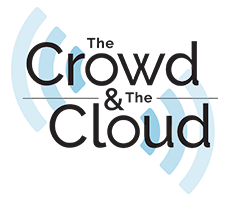
Newsletter
Sign up and stay in-the-know about The Crowd & The Cloud and the world of citizen science.


My name is Marc Edwards. I'm a professor of Civil Engineering at Virginia Tech.
What was it about the Philadelphia situation that seemed to be worth getting your lab involved in and working on?
Philadelphia has so many lead pipes and a very high incidence of children with elevated lead in their blood. They also are trying to do corrosion control, but we know this is not as effective as we once hoped. They were using so-called "cheats," techniques that had been banned because they make lead in water look lower when you sample for the EPA rules, but it's high when kids actually drink the water. It concerned us all, the potential danger to Philadelphia's population. They are being left exposed to the best known neurotoxin, and no one was going to help. (C&C: as noted in the Q&A’s with Tony Spagnoli and Jonathan King, the Philadelphia Water Department updated its testing procedures in 2016, in part as a response to public scrutiny and pressure.)
Are millions of Americans exposed to lead in drinking water?

A section of lead-coated pipe.
There's no question that millions of Americans are being exposed to lead in drinking water. What's scary is that they're even being exposed to levels of lead that we knew were harmful 25 years ago, before we knew that even lower levels of lead were dangerous. Not only is the existing law known to be ineffective, but 60 plus percent of US cities are not even meeting that law.
What are these “cheats” that you refer to?
The cheating really started in about 2004, when the EPA inadvertently caused the worst modern lead in water contamination event in US history in Washington, DC. They were under pressure to "get the system fixed," make lead look lower by chemical treatment. We now know that the water utility started adding extra steps to the normal protocol. For example, the night before residents collected their sample, the water company said to clean out their pipes for at least 10 minutes. This artificially makes lead lower when you collect the sample. We call this "pre flushing."
Another trick was they were giving out bottles that had very tiny openings on them so that consumers couldn't fill the bottle at a normal flow rate. When you fill it with a trickle, a lot of the particulate lead, chemically identical to lead paint chips, doesn't come out, but it will come out during normal use. As a result of using these these extra steps, the utility was able to say, in 2006, that the water is “safe to drink.” Three independent groups, one from Berkeley, found all kinds of problems while EPA was telling everyone that Washington was meeting existing regulations. We now know that during that time period children were still being exposed to high lead. There was a higher incidence of lead poisoning in homes with lead pipe.
The danger is you can convince yourself the water is safe when it's not. We also had a case in Durham, North Carolina, where the entire city was being told that their water was safe, but kids were also being poisoned. We were able to show that it was because the water company was telling the consumers, before sampling, to remove the aerator and clean out all the lead particles. The next day, you take a sample, and "Oh, the lead's low." EPA essentially banned that practice because of that. We thought we had that practice banned. They wrote a memo that said, "Do not do that," but utilities kept doing it. We screamed about it. I actually wrote letters to the EPA, where I blamed them. People were talking about cheating right in front of the US EPA at conferences. EPA just sat there and smiled, did nothing.
They are the policemen, and they sat right there and watched this happening. Despite our efforts to expose this, all the screaming that we were doing about how dangerous this was for 10 years, EPA stabbed us in the back at every opportunity. As a result, utilities all over the United States found it easier to cheat than to do their job. All of those factors came together in Flint, Michigan.
Specifically in Philadelphia, what has been going wrong to get fake results?
The water company is using all of the same cheats that were used in Flint to hide the problem from the public. We realized what a sick joke this was in Flint. Even as neighborhoods of children had their blood lead elevated, even as the National Guard walked the street and distributed bottled water and filters, we have this water disaster because of high lead exposure. Flint never failed the Lead and Copper rule because they didn't sample the right houses, and they used cheats. (C&C: see the LCR Summary in Related Projects.) In Philadelphia, they're doing all of the same cheats plus the act of removing the aerator the night before and cleaning that out. They actually did Flint one better.
The commissioner of Philadelphia Water Department said categorically, "Philadelphia's drinking water is safe." What is wrong with that statement?
It's scary, at this point in time, given all we know about lead, that a public health official would make such an outrageously false statement. No one who studies this problem today would ever say that the water in a home served by a pure lead pipe is safe. You might sample that water 50 times. 49 of those times, you get a low number. It gives you this sense of security. The 50th time you take that sample, the water could have hazardous waste levels of lead, enough lead in a single glass that if a child consumed that, it'd be like eating 10 lead paint chips. Children do drink that water. How on Earth can you say that's safe? This is like drinking water through a lead straw.
In McCarty’s defense (Debra McCarty is the Philadelphia Water Commissioner), 25 years ago we had hoped that this Band Aid corrosion control, adding chemicals to the water to coat the pipes and keep the lead out of the water, was going to be more effective. It's very important, but anyone who's looked at this problem knows that it's not good enough. It's not good enough to protect children. A consensus has emerged, and we discussed it at the EPA, that we should never ever again say in this country that water passing through a lead pipe is safe for human consumption.
Tell us about the shared responsibility between water departments and individual American citizens, and how that is a problem in terms of delivering healthy water?
Most Americans do not understand that there is no law that specifies the maximum allowable lead that comes out of any drinking water tap in the United States. You can have hazardous waste levels of lead coming out of the faucet in your child's kindergarten classroom. It's a “shared responsibility.” What that means is, the water utility is supposed to do their job trying to minimize the amount of lead leaching that occurs, and if there's a problem, to tell everyone in the city. Even when the law works, they're supposed to be telling people that it's not necessarily protecting your family. It's not necessarily protecting your children.
The water industry has not really been an honest broker. If you're going to have a shared responsibility law, you need an honest broker explaining “Here's our part of the responsibility, here's your part.” How do you meet that responsibility when the Commissioner of a city tells everyone that the water is safe to drink? Even by definition, you're doing everything you can, you can never tell people that. 10 percent of the homes can have any amount of lead whatsoever. How did you communicate that risk to people when you made this blanket false statement that the water's safe? Ultimately, the burden for protecting your family and your children, it falls on you, even when the law is working. C&C: as reported in the Philly Unleaded segment of program 2, all but a few tests done as part of Philly Unleaded returned lead levels well below EPA’s Action Level of 15 parts per billion. But Jonathan King’s home tested at 48ppb, showing the value of testing even when no lead pipe is suspected as being present.)
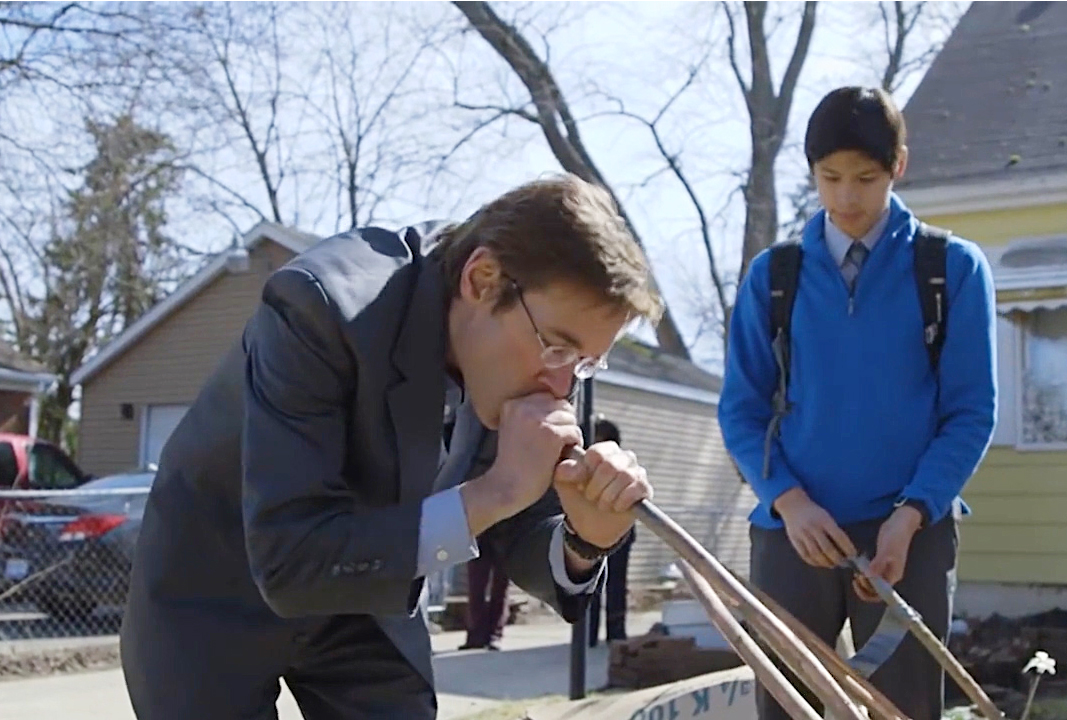
Marc blows on a lead pipe outside a Philadelphia home. Courtesy VT.
The ultimate solution is to get all the lead out of plumbing. Unfortunately, lead pipes are hard to replace. We don't know where they all are. It's very, very expensive. Frankly, we're probably going to have to live with lead pipes in the United States for a hundred years. But we can do a lot better job of getting those lead pipes out, and warning people of the risks. I think the lead that's in home plumbing (in solder joints and faucets) is going to be replaced quicker, because that plumbing tends to wear out faster. The average lifetime of a home plumbing system is maybe 20, 30 years. The Lead (Service Line) pipe (connecting the mains to homes) is really the problem, because it's actually a government-caused, government-owned problem. The reason those lead pipes are there is because it was the law that you had to use a lead pipe in many cities if you wanted to connect to the city water system. Governments do not do a good job fixing problems that they created.
Could you describe how water from the treatment plant goes to a glass of water, and where the greatest risk of lead is?
One of the fascinating things is that there's absolutely no lead in the big water mains that bring water to your house. Generally, there's very little lead in the source water, whether you get it from a river, lake, or groundwater. Treatment plants remove that lead if it's present. It goes through big pipes and eventually makes it to your neighborhood. It's only after it makes that final turn, that final step of the journey, when it goes into the pipes that only serve your house.
At that point, your house is connected to the water main with what's known as a Service Line. That's where the majority of lead pipes are in this country. If water passes through a pure lead pipe, it's like the equivalent of drinking the water through a 30 foot long lead straw. As it's going through that lead pipe, some of the lead dissolves like sugar in water. Sometimes pieces of lead rust fall off. This is chemically equivalent to lead paint chips falling into your water.
Then it goes into your house plumbing, which has lead solder, used to connect metal pipes together. At least, it was until 1986. You also have many intricate plumbing devices that are made of brass. Almost every faucet in your kitchen, for example, has brass in it. The brass could legally contain up to 8 percent lead by weight until January 2014. After that time, we came up with much more stringent laws that stopped these manufacturers from adding lead to the plumbing. They were actually adding lead purposely to the plumbing to make the manufacturing of these products cheaper and easier.
In a city like Philadelphia, you can have lead and water measurements that vary by what we call five orders of magnitude. I guarantee if we sampled enough, we could collect samples of water in Philadelphia that had 10,000, or 20,000 parts per billion lead. That's two to four times hazardous waste levels. Then you'll have some houses that have almost undetectable lead, around 0.1 parts per billion. There's such a variability in risk. That's one of the things that makes this so scary and so hard to deal with.
Why is a citizen science approach a potential solution to this problem?
The Lead and Copper Law is quite fascinating, because it originated from an outcry amongst people who were concerned about safe drinking water. The Safe Drinking Water Act was really a citizen forced law. The water industry has done its very best to undermine it. Let me just say, I was a proud member of the water industry for 25 years. In general, these folks do a wonderful job of protecting the public, but there's something about this rule that just brings out the worst in people.
We have worked with moms in Washington DC, Durham, and Flint. Moms figured out on their own that their kids were being lead poisoned from water. This nightmare scenario has played out over and over again. The American public think there's a law that's protecting them. They have this false sense of security. Mothers have to figure out on their own their kids are being poisoned from this source against all the efforts of the water utilities, the Centers for Disease Control, and the local health departments. There's no more powerful scientific force on this planet than a mother trying to figure out why their child is sick and is not developing. These moms have been extraordinarily good scientists; better scientists than those at these government agencies.
The problems were exposed by parents and families who were affected by the harmful effects of lead over all the efforts of the agencies. A hero mom, LeeAnne Walters, figured out on her own that one of her kids had been lead poisoned from water. She figured out that the state had lied to the EPA in writing about having corrosion control. Even after all of that information was collected and she proved the existing federal law was being broken, no one would do anything to help. We partnered with her, and we did the job that these agencies are paid to do and refused to do.
It's really extraordinary. We're paying scientists and engineers great amounts of money, they have good government jobs to protect us from lead in water, and they refuse to do that job. In Flint, we had to give the residents the power to do the job they refused to do. They showed that Flint had a widespread lead in water problem, that the entire city was in danger, even as the EPA and the state were just blatantly lying to people. It's an extraordinary story of citizen science and the outrage and sense of betrayal that can occur when kids have been harmed. They've been harmed by the very environmental policemen that we pay to protect us. The environmental policemen became the environmental criminals, and no one ever thought anything like that would ever happen. Without citizen science, we wouldn't be here at all.
Should citizens have to force authorities to meet their responsibility?
Should Moms and Dads have to give up their life to do a job that we pay people well to do? Yes, because unfortunately, they refuse to do the job. This goes back about 150 years. It's documented in a book called "The Great Lead Water Pipe Disaster." As I said, governments do not do a good job of fixing problems that they create. What you get instead is a century and a half of deaths, deceit, and denial. At every single point, normal parents had to figure out that they were literally being poisoned by their own government.
In a perfect world, people would do their jobs. It's a cautionary tale, because we live in a society where you have to trust people. You cannot live in today's world without trusting people. Do you know how hard you have to work to lose the trust of people to the point they will give up their lives and do your job for you? That's the story of what happened in Washington and Flint. That's what's happening all around the country now. Every rock people turn over, something slimy is crawling out. They would love nothing more than to turn that rock over, find nothing, and go on with their lives. They would love nothing more than to ask a question and find out there's an adult there giving them honest answers. Instead, they're fed, "Oh, the water in Philadelphia is completely safe. We're following the law. Everything's wonderful." No. They sense that there is not an adult in the room, that they have to give up their lives to protect their families.
The Water Department claims communities are not willing to cooperate with lead testing. Is this true?
Our experience over the last 10 years is that about 90 percent of customers will cooperate with sampling if you tell them what you're looking for and why. I've never understood why the water utilities think that this is a valid excuse. It's actually a flat out lie. In Flint, one of the reasons they claim they could not follow the law is that Flint residents don't care about their water, that not enough Flint residents would participate in the survey. When we went in to Flint we thought, based on this sort of mindset we were hearing, that in order to get a reasonable sample, we'd have to distribute 300 kits and get 10 percent back for a reasonable sample size. Flint residents returned 90 percent of those kits, and let me put that in a perspective for you. When I did surveys for the water industry, where people were paid to participate in the survey and collect the bottles, I would get 60 percent. That's a good return rate. Flint residents returned 90 percent of those kits. Do not tell me that Flint residents don't care about their water, that they will not cooperate with an effort to determine the safety level of the water.
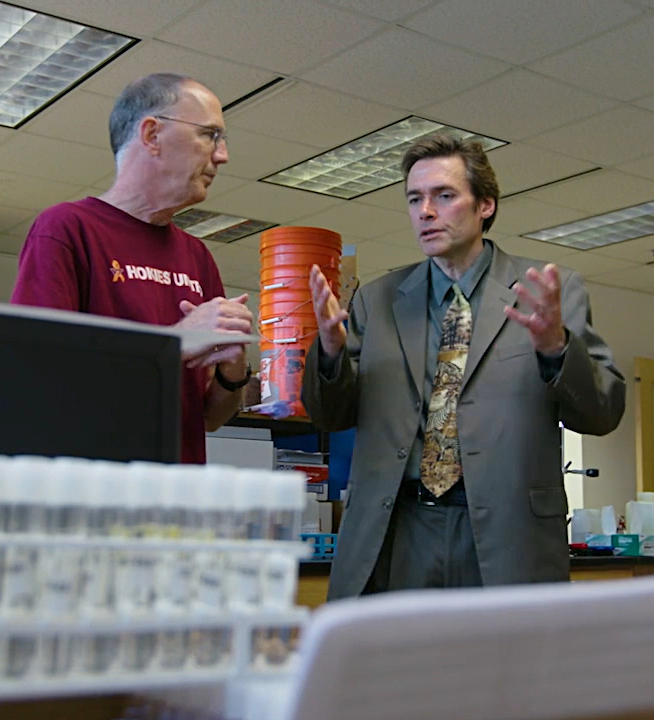
Jeff and Marc discussing lead in the water testing lab at Virginia Tech.
When the Philadelphia Water Department says that out of 100,000 homes they cannot get more than 30 to cooperate no matter what they do, yeah, I'm calling you out. That's false. You give me those maps, you give me the phone numbers, I will get thousands of Philadelphia residents to gladly participate. It's mind boggling that they think they're going to get away with it. They are getting away with it, the EPA wants to believe them and doesn't want to do their job either.
Will the water companies ever be able to earn back the public’s trust?
No, the water industry is not deserving of the public trust on this issue. I see no evidence that they have learned anything from what happened in Flint, or Washington, DC, except they hope that they can get away with anything, likewise with the EPA. We'll be watching this very closely, but I think it's going to be decades, if ever, before the water industry is once again deserving of the public trust on any aspect of water that affects people in their homes. That includes lead, that includes legionella, Legionnaires' disease which grows in people's houses but the water that goes into the houses feeds those bacteria. Your chances of getting honest research, honest communication are about zero in the current climate of denialism.
The water company literally has done the tobacco industry proud in terms of falsified reports, false advertising, and just basically betraying the public trust and, frankly, betraying their own proud heritage. As I said, I was a proud member of this group for 25 years. I could not believe that these people were behaving the way that they did. I ultimately had to quit, as did Miguel Del Toral at EPA who was another key actor exposing the Flint water disaster. This is going to go down in the annals of history as one of the greatest betrayals of public trust in history.
Is the EPA funded enough to police the delivery of safe water?
I would be the first to admit that the EPA doesn't have enough resources to do their job. On the other hand, if you see how hard they worked in Washington, DC and Flint, Michigan to not do their job, you realize we've got a much bigger problem on our hands. We've got a problem of a corrupt culture. It would have been the easiest thing in the world for EPA to tell Flint or Washington, DC to follow the law. End of story. It would have taken one minute, and instead, they worked overtime to not do their job. They created this disaster where they had to work a year to try to clean up this mess and restore trust in the public. This issue goes way, way beyond funding although that's part of the problem. We've got a corrupt culture at the EPA.
When this happened in Washington, DC, and all the perpetrators of that crime got away and they learned nothing except that they can get away with anything including murder, frankly, I knew that another Washington, DC was inevitable. That happened in Flint, and unless we force EPA to admit their mistakes and we fix this culture of corruption, it will happen again. Maybe we won't find out about it, just as we'd never would have found out about what happened in Flint, had all these outside actors not intervened. This contributes to a legitimate sense of danger and distrust across America. This is why Flint is resonating with everyone, makes everyone mad.
As a professional scientist, what do you think the responsibility of funded researchers is to get engaged in this kind of debate using science to inform discussion?
As a university professor, you always hope that science will prevail or as Mark Twain once said famously, "The truth is mighty and it will prevail, but unfortunately that just isn't so.” When children are under an imminent substantial endangerment to their health, and the authorities are going to do nothing to stop it, this is a war for common morality. You're fighting for the future of children, you're fighting for the future of a city. This is one of our most vulnerable populations in the United States. If anyone deserves people to stand up for what is right, it was the folks in Flint, Michigan.
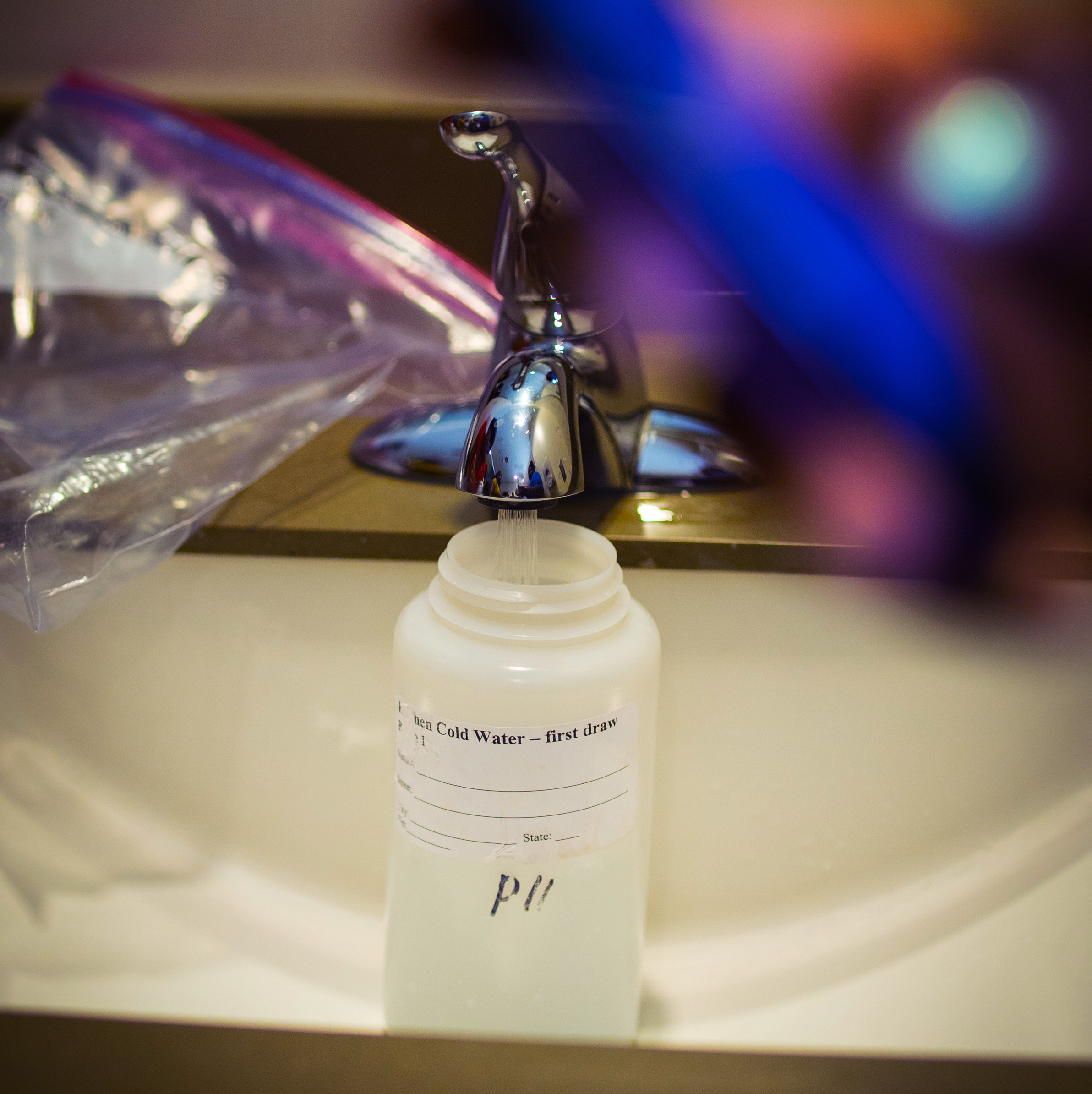
Witnesses to Hunger volunteer sampling water in her home.
Everything I had been taught in my career was to trust and look the other way, be quiet, and I'm sorry, I'm not going to do that, not on my watch. I had a special responsibility, I was one of the only people who could have helped, for whatever reason, I'm the only type of professor who would help. I did it, we were criticized, but I have no regrets. I think we all have to have this special burden. We, scientists and engineers, we have special knowledge and training, we know things that the normal person does not know. If we're on the sidelines and allow this injustice to occur, people get hurt, and that's happening all over the United States and in part, because academics refuse to exercise their freedom, they refuse to exercise their common morality.
We are taught to look the other way, and frankly, we are the greatest generation of cowards this country has ever seen and I count myself amongst those. I am a coward 99 percent of the time, because I cannot have a job in academia today without continually courting and seeking out fundings. To some extent, by doing what we did in Flint, I betrayed my friends, my profession, and it was a horrible experience, but I refuse to be shamed by that.
If you had unlimited power, what would you do in America to solve the lead in drinking water problem?
The only thing we have to do to solve the problem that occurred in Flint, Michigan and Washington, DC is to follow the law we had. That's what so maddening about this. The law was broken blatantly in both cases, and vulnerable people paid a horrible price for that. We can do better than the existing law. I'm a proponent of trying to do better, but I realize there's other priorities in the world.
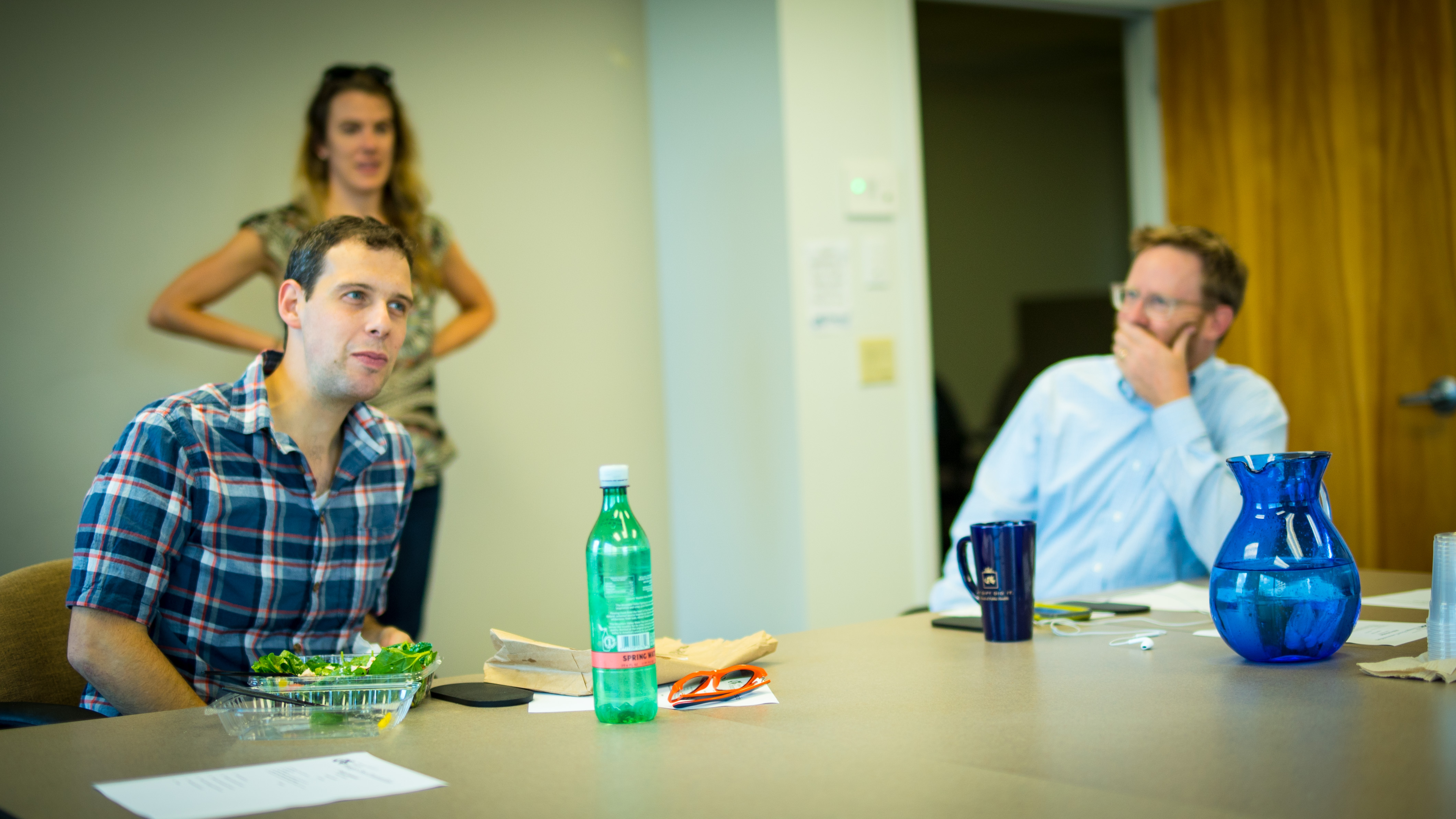
Tony Spagnoli, and others from the Philly Unleaded team, discuss testing water for lead in Philadelphia.
Personally, I think we should spend more money trying to get rid of these lead pipes, but at the same time, I have enough humility to know in my heart that maybe it is not the most important problem in the world. Maybe we should try to solve this problem by using filters, for example. We should do more to deal with lead and water, we should do more to deal with our declining water infrastructure. We should do more to address the legionella deaths that occur as people are being exposed to that pathogen in their showers. There's a long list of things that we can spend our money on. Lead is one of those.
Actually, in my heart, I'm a little bit fearful of the backlash here that maybe we're going to go too far, maybe we're going to spend too much money on lead in water, which could take away from other things like education and all those other problems. One of the problems we, as academics, face is we're so used to pushing our pet causes because there's a golden ticket there in terms of research that we lose track of the world that surrounds us and the fact that we're all competing for resources. Yeah, lead pipes should be a bigger priority, but I'm not prepared to say that that's where we should spend too much of our money.
What made you get involved with Jonathan King and Tony Spagnoli’s group?
When someone calls me with a problem and they present themselves in a very reasonable, rational fashion, it's appealing. There's an adult on the other end of that line and they're explaining the situation. He had information about what was occurring in Philadelphia and, frankly, it shocked me. This is Flint all over again, plus removing aerators. You have to work with people in those circumstances, in my opinion. There's hundreds of thousands of lives that are at stake. You find a way, just like I found a way with LeeAnne Walters when she called, just like I found a way with the parents in Washington, DC. In some ways it's the greatest challenge that we academics face to doing our job. You know that this is what it's all about. This is the job you're born to do. Now it's true there's obstacles, many of them preventing you from going this path, but where there's a will, there's a way.
In some ways it's a burden because you have to step forward and cross the line of being an activist. Even if you're presenting scientific facts in a dispassionate way, the people who used to pay your funding, the people who used to be your friends, are on the other side of the table, on the other side of this issue. It's very, very stressful because there's this sense of being a whistleblower. There's a sense of betraying people that you once worked with and trusted, but we in civil engineering, our highest priority is to protect the public welfare and that's what's at stake here. I will personally bear any burden to meet that mandate.
